Email Marketing for Agencies
Peering into the email marketing arena, it’s fundamental for agencies to master its tactics. These strategies can garner robust client relationships and propel business evolution.
A pivotal tool in digital communication, email marketing maintains its significance for agencies even in the face of emerging technologies. As a primary tool for lead generation, it bridges the distance between agencies and audiences. With an efficient email marketing plan, agencies can foster client relationships through direct, tailored messaging. For instance, personalized newsletters, promotional offerings, and regular updates can sustain client engagement and reinforce their connection to the brand. Additionally, analytics from email marketing campaigns provide valuable data that can better inform business strategies, enabling agencies to maximize their potential benefits.
Email Marketing for Agencies to harness the true power of email marketing, comprehension of its fundamental concepts is imperative. The core components encompass crafting targeted content, segmenting audience lists, and measuring campaign performance.
Content targeting involves creating tailor-made emails that cater to the specific needs, interests, or actions of the client or prospective client. This strategy can be likened to designing a custom suit, with every stitch crafted to fit the wearers’ unique dimensions and tastes.
Next, segmenting audience lists ensures that the right message reaches the right audience. This process is akin to sorting mail into different slots based on the recipient’s address, ensuring that each person receives the appropriate content.
The Role of Email Marketing in an Agency’s Strategy
For agencies, email marketing represents a versatile and efficient strategy. It’s a conduit for connecting with clients, fostering engagement, and ultimately, driving growth.
Email Marketing for Agencies, known for its capacity to foster engagement, plays an essential role in an agency’s strategy. Delivers personalized content, such as newsletters, promotional offers, and updates, it keeps audiences tuned into the company’s activities.  For instance, agencies may send weekly newsletters highlighting their work, useful tips, or industry news. This strategy not only keeps clients informed but also makes them feel valued and considered.
For instance, agencies may send weekly newsletters highlighting their work, useful tips, or industry news. This strategy not only keeps clients informed but also makes them feel valued and considered.
An inherent part of email marketing lies in maintaining regular communication. Agencies leverage this strategy to build and enhance client trust. Regular updates, advice, and insights shared via email contribute to a sense of openness and transparency. As an example, an agency might share monthly reports with a client, containing key marketing metrics and campaign results. This not only demonstrates the agency’s commitment to accountability but also provides valuable insights to the client, thereby nurturing trust.
Setting an Email Marketing Strategy for Your Agency
Gearing up for an effective email marketing strategy propels an agency’s capacity to enrich client relationships. To devise such a strategy, there are two major steps agencies must tackle: identifying target audience and developing compelling content.
Audience identification sits at the core of designing an email marketing strategy for agencies. It details who’ll read your communications and, therefore, whose engagement you’ll cultivate. To identify the target audience, agencies mesh client demographics, category interests, and behavioral data.
For example, an agency servicing small businesses might have a target audience including start-up entrepreneurs, local store owners, and freelance professionals. Specific tailoring of an email marketing campaign towards these demographics allows for a sharper focus on content relevance, generating greater engagement rates. Ultimately, the thoroughly identified target audience lays groundwork for content development and campaign direction.
On capturing your audience’s attention, crafting compelling content emerges as paramount. Agencies bank on content that resonates with their audience’s needs and interests. A blend of value-based and engaging content fosters client engagement and propels lead generation.
For instance, newsletters and promotional updates, when designed with relevant information and styled attractively, become compelling pieces of communication. Such content could involve industry trends, agency updates, advice columns, or case studies. The more appealing and relevant the content is to the target audience, the higher is the likelihood of it spurring client interaction and maintaining the consistency of a fruitful dialog between the agency and its clientele.

